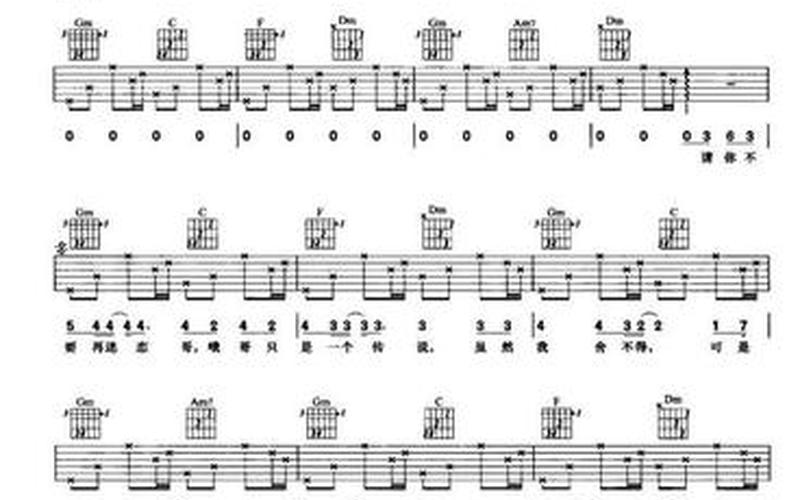巴甫洛夫很忙?问题
⒈“巴甫洛夫很忙……”这句活是在什么情况下说的?⒉巴甫洛夫在生命最后一刻在忙些什么?
⒊文中画“_______”的内容是否可以删去?为什么?(见下面)
⒋你怎样评价巴甫洛夫?
⒌巴甫洛夫的故事让你对生与死有什么看法?
巴甫洛夫将自己关在屋子里在忙些什么呢?忙着写遗嘱、分遗产、交代后事吗?忙着向万能的主祈祷妈?忙着过电影一样回顾一生中那些精彩的瞬间吗?忙着哀求医生不顾一切而代价用更好的药吗?
1.“巴甫洛夫很忙,巴甫洛夫正在死亡”,这句话是在巴甫洛夫临死亡时说的。
2.忙,他在忙,他在忙着。密切注视着越来越糟糕的身体状况,忙着不断地向坐在身边的助手口授生命衰变的感觉没,忙着要为一生挚爱的科学事业留下更多的感性材料。生死较量前,巴甫洛夫依旧忙着科学事业的发展。
3.不可以。
4.他很伟大,他在忙中透着一种勤奋、豁达、超然、镇静、无私和无畏。
5.生要为社会做点事,死才无憾。生活中的我们,又何尝不在忙着呢?
巴甫洛夫很忙?是真的吗
“巴甫洛夫很忙......"这话不是别人说的,正是巴甫洛夫对别人说的话。“巴甫洛夫很忙......”是其在生命的最后一刻说的,当时有人敲门,想进来看望他。意料之外,情理之中,可是巴甫洛夫正将自己锁在屋子里做什么呢?
忙着写遗嘱?分财产?交代后事?忙着向万能的主做最后的虔诚的祈祷吗?忙着过电影似的回顾一生中那些精彩的瞬间吗?忙着哀求医生不惜一切代价用更好的药物吗?
全都不是!!!
在生命的最后一刻,巴甫洛夫正在一直密切关注自己越来越糟糕的身体状况,不断向坐在身边的助手口述生命衰变的感觉,他要为一生挚爱的科学事业留下更多的感性材料。对于人们的关心·探望,他只是不尽人情的加以拒绝:“巴甫洛很忙......巴甫洛夫正在死亡。”来人被拒绝在门外,只好心情复杂地走了......
巴甫洛夫在生死较量中所表现的勤奋.豁达.超越.镇静.无私.无畏.,令每个深悉他的人或者每个对生命能够保持足够高度的人领略后深深心悦诚服,折服。对于一切生命有机体来说,生与死是一对矛盾体,有生必有死,有死必有生,在巴甫洛夫的眼里,死亡不是生命的终结,而是生命的升华。在巴甫洛夫的眼里死亡仿佛是生命的延续。一句”巴甫洛夫很忙......巴甫洛夫正在死亡“不是诗篇,胜似诗篇。
相形之下,在我们周围,有许多生命力旺盛的人成天从早到晚忙碌,一心一意忙着票子.房子.位子.车子等等,视庸俗为潮流,视利己为时尚。临终时可,就突然煞了尾。这样的个体生命,像是被白蚁侵蚀的江堤,只能给历史的长河带来诸多意想不到的不幸和灾难。
下面分享相关内容的知识扩展:
巴甫洛夫:诺奖得主频做“荒唐事”
巴甫洛夫(Ivan Petrovich Pavlov)是之一位获得诺贝尔奖的俄国人,也是世界之一位获得诺贝尔医学和生理学奖的生理学家,提起他的“条件反射”学说,几乎无人不知。出身贫寒的巴甫洛夫能够获得大奖,与他的勤奋是分不开的。有人说“痴”是勤奋的更高境界,巴甫洛夫便是一个科学研究上的“痴人”,他因痴迷于研究,闹出过不少“荒唐事”。
求翻译巴甫洛夫中英文简介
巴甫洛夫?伊凡?彼德罗维奇(生于1849年9月27日, 卒于1936 年2月27日)是俄国之一个获得诺贝尔奖金的科学家,也是世界上之一个获得诺贝尔奖金的生理学家。他一生中在生理学领域中研究的内容相当广泛,涉及生理学的许多部门,包括血液循环、消化、分泌、高级中枢神经活动、身体机能的神经体液调节、劳动生理学、比较生理学、药物学、实验病理学、治疗学等。在血液循环生理学、消化系统生理学及高级神经活动生理学等三方面他都做出了卓越的贡献。曾任彼得堡实验医学研究所生理实脸室主任、军医学院(前称“外科医学院”)生理学教授、苏联科学院生理学研究所所长等职。他的科学贡献大致分三个时期,属于三个领域,即心脏生理、消化生理和高级神经活动生理。早年发现温血动物心脏有特殊的营养性神经,能使心跳增强或减弱。在消化腺的研究中,他创造多种外科手术,改进实验 *** ,以慢性实验代替急性实验,从而能够长期地观察整体动物的正常生理过程。在研究消化生理的过程中,形成了条件反射的概念,从而开辟了高级神经活动生理学的研究。从1903年起,连续三十余年,致力于这个新领域的发展。晚年转入精神病学的研究,并提出了两个信号系统学说。他的高级神经活动学说对于医学、心理学以至于哲学等方面都有影响。1904年获诺贝尔生理或医学奖。主要著作有《消化腺机能讲义》、《动物高级神经活动(行为)客观研究二十年经验》及《大脑两半球机能讲义》等,收入《巴甫洛夫全集》。
Ivan Petrovich Pavlov (Russian: Ива?н Петро?вич Па?влов; September 26 [O.S. September 14] 1849 – February 27, 1936) was a famous Russian physiologist.
Inspired by the progressive ideas which D. I. Pisarev, the most eminent of the Russian literary critics of the 1860s and I. M. Sechenov, the father of Russian physiology, were spreading, Pavlov abandoned his religious career and decided to devote his life to science. In 1870 he enrolled in the physics and mathematics faculty at the University of Saint Peter *** urg to take the course in natural science.
Life and researchIvan Pavlov was born in Ryazan in the Central Federal District of Russia, where his father, Peter Dmitrievich Pavlov, was a village priest.[1] He began his higher education as a student at the Ryazan Ecclesiastical Seminary, but then dropped out and enrolled at the University of Saint Peter *** urg to study the natural sciences and became a physiologist.
In 1875 Pavlov completed his course with an outstanding record and received the degree of Candidate of Natural Sciences. However, impelled by his overwhelming interest in physiology, he decided to continue his studies and proceeded to the Academy of Medical Surgery. He received his doctorate in 1878 and completed the third course in 1879, again being awarded a gold medal. After a competitive examination, Pavlov won a fellowship at the Academy, and this together with his position as Director of the Physiological Laboratory at the clinic of the famous Russian clinician, S. P. Botkin, enabled him to continue his research work. In 1883 he presented his doctor's thesis on the subject of The centrifugal nerves of the heart. In this work he developed his idea of "nervi *** ", using as example the intensifying nerve of the heart which he had discovered, and furthermore laid down the basic principles on the trophic function of the nervous system. In this as well as in other works, resulting mainly from his research in the laboratory at the Botkin clinic, Pavlov showed that there existed a basic pattern in the reflex regulation of the activity of the circulatory organs.
In the 1890s, Pavlov was investigating the gastric function of dogs, and later children,[2] by externalizing a salivary gland so he could collect, measure, and *** yze the saliva and what response it had to food under different conditions. He noticed that the dogs tended to salivate before food was actually delivered to their mouths, and set out to investigate this "psychic secretion", as he called it.
Pavlov was highly regarded by the Soviet government, and he was able to continue his research until he reached a considerable age. Moreover, he was praised by Lenin and is a Nobel laureate.[3]
After the murder of Sergei Kirov in 1934, Pavlov wrote several letters to Molotov criticizing the mass persecutions which followed and asking for the reconsideration of cases pertaining to several people he knew personally.
Conscious until his very last moment, Pavlov asked one of his students to sit beside his bed and to record the circumstances of his dying. He wanted to create unique evidence of subjective experiences of this terminal phase of life.[4]
[edit] Reflex system researchPavlov contributed to many areas of physiology and neurology. Most of his work involved research in temperament[citation needed], conditioning and involuntary reflex actions. Pavlov performed and directed experiments on digestion, eventually publishing The Work of the Digestive Glands in 1897, after 12 years of research. His experiments earned him the 1904 Nobel Prize in Physiology and Medicine.[5] These experiments included surgically extracting portions of the digestive system from animals, severing nerve bundles to determine the effects, and implanting fistulas between digestive organs and an external pouch to examine the organ's contents. This research served as a base for broad research on the digestive system.
Further work on reflex actions involved involuntary reactions to stress and pain. Pavlov extended the definitions of the four temperament types under study at the time: phlegmatic, choleric, sanguine, and melancholic, updating the names to "the strong and impetuous type, the strong equilibrated and quiet type, the strong equilibrated and lively type, and the weak type." Pavlov and his researchers observed and began the study of tran *** arginal inhibition (TMI), the body's natural response of shutting down when exposed to overwhelming stress or pain by electric shock.[6] This research showed how all temperament types responded to the stimuli the same way, but different temperaments move through the responses at different times. He commented "that the most basic inherited difference. .. was how soon they reached this shutdown point and that the quick-to-shut-down have a fundamentally different type of nervous system."[7]
Carl Jung continued Pavlov's work on TMI and correlated the observed shutdown types in animals with his own introverted and extroverted temperament types in humans. Introverted persons, he believed, were more sensitive to stimuli and reached a TMI state earlier than their extroverted counterparts. This continuing research branch is gaining the name highly sensitive persons.[citation needed]
William Sargant and others continued the behavioral research in mental conditioning to achieve memory implantation and brainwashing (any effort aimed at instilling certain attitudes and beliefs in a person).[citation needed]
[edit] Legacy
One of Pavlov's dogs, preserved at The Pavlov Museum, Ryazan, RussiaThe concept for which Pavlov is famous is the "conditioned reflex" (or in his own words the conditional reflex: the translation of условный рефлекс into English is debatable) he developed jointly with his assistant Ivan Filippovitch Tolochinov in 1901.[8] Tolochinov, whose own term for the phenomenon had been "reflex at a distance", communicated the results at the Congress of Natural Sciences in Helsinki in 1903.[9] Later the same year Pavlov more fully explained the findings, at the 14th International Medical Congress in Madrid, where he read a paper entitled The Experimental Psychology and Psychopathology of Animals.[10]
As Pavlov's work became known in the West, particularly through the writings of John B. Watson, the idea of "conditioning" as an automatic form of learning became a key concept in the developing speciali *** of comparative psychology, and the general approach to psychology that underlay it, behaviori *** . The British philosopher Bertrand Russell was an enthusiastic advocate of the importance of Pavlov's work for philosophy of mind.[11]
Pavlov's research on conditional reflexes greatly influenced not only science, but also popular culture. The phrase "Pavlov's dog" is often used to describe someone who merely reacts to a situation rather than using critical thinking. Pavlovian conditioning was a major theme in Aldous Huxley's dystopian novel, Brave New World, and also to a large degree in Thomas Pynchon's Gravity's Rainbow.
It is popularly believed that Pavlov always signaled the occurrence of food by ringing a bell. However, his writings record the use of a wide variety of stimuli, including electric shocks, whistles, metronomes, tuning forks, and a range of visual stimuli, in addition to ringing a bell. Catania[12] cast doubt on whether Pavlov ever actually used a bell in his famous experiments. Littman[13] tentatively attributed the popular imagery to Pavlov’s contemporaries Vladimir Mikhailovich Bekhterev and John B. Watson, until Thomas[14] found several references that unambiguously stated Pavlov did, indeed, use a bell.
It is less widely known that Pavlov's experiments on the conditional reflex extended to children, some of whom apparently underwent surgical procedures, similar to those performed on the dogs, for the collection of saliva.[15]
自己找咯
伊万·彼得罗维奇·巴甫洛夫的生活
“巴甫洛夫很忙……”,这话不是别人说的,是巴甫洛夫对别人说的。“巴甫洛夫很忙……”是巴甫洛夫在生命的最后一刻说的,当时有人敲门,想进来看看他。
巴甫洛夫将自己关在屋子里忙什么呢?忙着写遗嘱、分财产、交代后事吗?忙着向万能的主祈祷吗?忙着过电影一样回顾一生中那些精彩的瞬间吗?忙着哀求医生不惜一切代价用更好的药吗?
都不是。在生命的最后一刻,巴甫洛夫一直密切注视着越来越糟糕的身体情况,不断地向坐在身边的助手口授生命衰变的感觉,他要为一生至爱的科学事业留下更多的感性材料。对于人们的关心、探望,他只好不近人情地加以拒绝:“巴甫洛夫很忙……巴甫洛夫正在死亡。”来人被拒之门外,只好心情复杂地走了。
巴甫洛夫在生与死的较量濒临 *** 时所表现出来的勤奋、豁达、超然、镇静、无私、无畏,令人深深折服。对一切生命有机体来说,生与死是一对矛盾,有生必有死,有死必有生。在巴甫洛夫的眼里,死不是生命的终结,而是生命的升华。一句“巴甫洛夫很忙……巴甫洛夫正在死亡”,不是诗篇,胜似诗篇。
与巴甫洛夫相比,在我们周围,有多少生命力旺盛的人从早到晚同样很忙啊,一心一意忙着票子、房子、位子、车子等等,视庸俗为潮流,视利己为高尚。这样的生命像是被白蚁蛀蚀一空的长堤,只能给历史的长河带来诸多意想不到的不幸和灾难。 与其他心理学家不一样的是,巴甫洛夫并不愿意做一名心理学家,相反,作为一名严谨的自然科学家。巴甫洛夫十分反对当时的心理学,反对过分强调“心灵”、“意识”等看不见、摸不着的仅凭主观臆断推测而得的东西。他甚至威胁说,如果有谁胆敢在他的实验室里使用心理学术语,他将毫不留情的开枪将他击毙。然而,这样一个如此鄙视心理学的人,却在心理学研究方面作出了重大贡献——虽然那并不是他的初衷! 巴甫洛夫在心理学界的盛名首先是由于他关于条件反射的研究,而这种研究却始于他的老本行——消化研究。正是狗的消化研究实验将他推向了心理学研究领域,虽然在这一过程中他的内心也充满了激烈的斗争,但严谨的治学态度终于还是使他冒着被同行责难的威胁,将生理学研究引向了当时并不那么光彩的心理学领域,而后来,该项研究的成果——条件反射理论又被行为主义学派所吸收,并成为制约行为主义的最根本原则之一。
巴甫洛夫对心理学界的第二大贡献在于他对高级神经活动类型的划分,而这同样始于他对狗的研究。后来他又向心理学领域迈进了一步。
到老年的时候,巴甫洛夫对心理学的态度有了松动,他认为:“只要心理学是为了探讨人的主观世界,自然就有理由存在下去”,但这并不表明他愿意把自己当作一位心理学家。直到弥留之际,他都念念不忘声称自己不是心理学家。但尽管如此,鉴于他对心理学领域的重大贡献,人们还是违背了他的“遗愿”,将他归入了心理学家的行列,并由于他对行为主义学派的重大影响而视其为行为主义学派的先驱。







